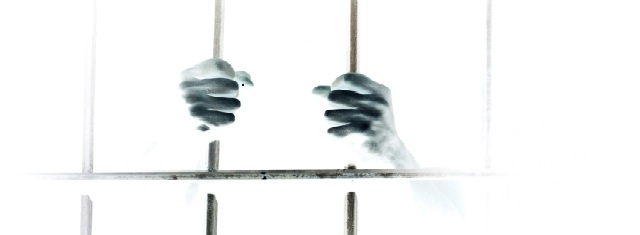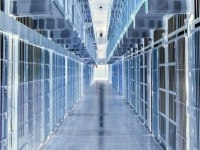Miscellaneous
SOLITARY CONFINEMENT AND ITS TABOOS AFFECTING THOUSANDS OF PRISONERS
LANDING IN EXTREME ISOLATION

(Source: © Ruby BIRD & Yasmina BEDDOU)
USPA NEWS -
Solitary confinement is widely considered to be a form of cruel and unusual punishment. Its victims are isolated fron society and can go for years without seeing so much of outside. This form of extreme isolation can appear as unethical, but it affects thousand of prisoners...
This form of extreme isolation can appear as unethical, but it affects thousand of prisoners. Even for a non-violent "crime", a minor offense would get someone landing in solitary confinement, and people have been put in longer sentences for trivial crimes.
Others are put in because of alleged affiliation to gangs, dispute with officers, protection from other inmates, and even for reporting sexual assault victimization. Unfortunately, some security guards can abuse their power and put prisoners in solitary confinement for no reason.
Others are put in because of alleged affiliation to gangs, dispute with officers, protection from other inmates, and even for reporting sexual assault victimization. Unfortunately, some security guards can abuse their power and put prisoners in solitary confinement for no reason.
Since mentally ill prisoners are more likely to disobey the rules, they are often the ones being thrown into solitary confinement. Many officers view mental illness as a burden and the easiest way to deal wih mentally ill prisoners is by locking them away.
Solitary confinement is especially bad for those with mental illness because they are often unable to handle the stress. This is even scarrier considering that solitary confinement can make sane prisoners exhibit signs of mental illness after too long. Prisoners being neglected and the extreme loneliness often make them feel depressed or uneasy. Many of them become paranoid or start to hallucinate.
Solitary confinement is especially bad for those with mental illness because they are often unable to handle the stress. This is even scarrier considering that solitary confinement can make sane prisoners exhibit signs of mental illness after too long. Prisoners being neglected and the extreme loneliness often make them feel depressed or uneasy. Many of them become paranoid or start to hallucinate.
Experts recommend that adults get at least eight hours of sleep each night, otherwise the person becomes irritable and exhausted. Less sleep means less energy and less self-restraint when it comes to temptation. Combine insomnia with all the other things prisoners must go through and some of them will get violent, even if only toward themselves.
Prisoners in solitary confinement are more likely to exhibit violent urges, depression and self-destructive behaviour. The harsh mental torture of solitary confinement leads many prisoners to take their own lives. Mental illness, depression and extreme isolation all play factors in the disproportionate rate of suicide.
Prisoners in solitary confinement are more likely to exhibit violent urges, depression and self-destructive behaviour. The harsh mental torture of solitary confinement leads many prisoners to take their own lives. Mental illness, depression and extreme isolation all play factors in the disproportionate rate of suicide.
The prisoners often don't get the help they need. They require therapy, human contact, psychiatric evaluation, but prisons are often understaffed with health professionals and overcrowded with mentally ill inmates. Extended time in solitary causes one to develop outbursts of anger and violent impulses. Therefore, it is no wonder that those held in solitary have a higher recidivism rate than the general prison population.
Ruby Bird Yasmina Beddou Prison Confinement Prisoners Suicide Mentaly Ill Stress Inmate Psychiatrist Officer
Liability for this article lies with the author, who also holds the copyright. Editorial content from USPA may be quoted on other websites as long as the quote comprises no more than 5% of the entire text, is marked as such and the source is named (via hyperlink).






